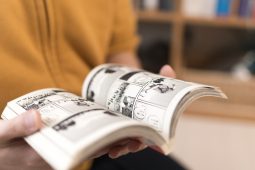In this article we will look at the polite language you should use in a Japanese job interview. It is important to review such language prior to your interview in order to make the best impression and avoid unintentionally impolite mistakes.
First Person — “I”
Avoid using casual words like boku (僕), or jibun (自分) for yourself and use the more formal watashi (私).
The Company
When referring to the company to which you are applying, the correct term is onsha (御社 — “your company”). Resist the urge to say kochira (こちら), meaning “here”, as this is not appropriate.
Onsha is used in spoken Japanese, but in written applications you should use the term kisha (貴社 — “your company”). In the interview the interviewer will use terms such as heisha (弊社 — “our company) or jisha (自社 — „my company“). Be careful not to repeat the interviewer’s terms when you answer the questions!
Sentence Endings
Use the polite forms desu and — masu and do not use da or plain verb forms as these are too casual. Even if you know this, if you are in the habit of speaking casual Japanese with your friends, you need to practice using these polite forms so that you don’t slip up in the interview.
Avoid Fillers
Japanese has a number of conversational fillers that can be used when the speaker needs time to think. Classic examples are eetto (えーっと), maa (まぁ), and ano (あの); all of which mean something like “hmm”, “er”, or “um” depending on the context. Although these fillers are fine for casual speech, none of these should be used in an interview situation as they make you seem hesitant and ill-prepared.
Understanding
Normally, when you want to acknowledge what someone has told you, you will use the word wakarimashita (わかりました — „I understand“ or „yes, I see“). But in an interview you should use more formal words such as shouchi shimashita (承知しました) or kashikomarimashita (かしこまりました), both of which have a more polite nuance like the English „certainly“.Be careful not to say ryoukai shimashita (了解しました) as this is a term used by senior figures to their subordinates.
Questions & Requests
If you have a question to ask, don’t announce it with a casual sumimasen (すみません — “excuse me”). You are not at a restaurant! Use expressions like those below:
質問してもよろしいでしょうか?御社は~
shitsumon shite mo yoroshi deshou ka? onsha wa…
“May I ask a question? At this company…”
お聞きしたいのですが、御社は~
okiki shitai no desu ga, onsha wa…
“If I may ask something, this company…”
Likewise, if you have a request, osore-irimasu ga (恐れ入りますが — “excuse me, but”) is a usefully polite prelude.
Common Words You Should Not Use
There are number of words that one might use in general conversation that are inappropriate in a formal interview. Words such as naruhodo (なるほど — “I see”) and tashikani (確かに — “definitely”) will come across as too casual, so use expressions like ossharu doori desu (おっしゃるとおりです — “it’s just as you say”) or hai, sou desu ne (はい、そうですね — “yes, that’s true”).
Likewise, rather than saying daijoubu (大丈夫 — “ok”) it is better to say mondai arimasen (問題ありません — “it’s not a problem”).
If you make a mistake and need to apologize use moushiwake arimasen deshita (申し訳ありませんでした) or moushiwake gozaimasen (申し訳ございません) to say “I am sorry”. Do not say sumimasen (すみません) or gomennasai (ごめんなさい).
In the second part of this article we will look at honorific and humble language.








